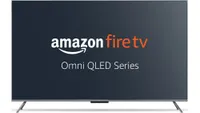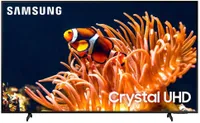The best TVs under $500 in 2025
You don't have to scrape the bottom of the barrel for an incredible 4K TV
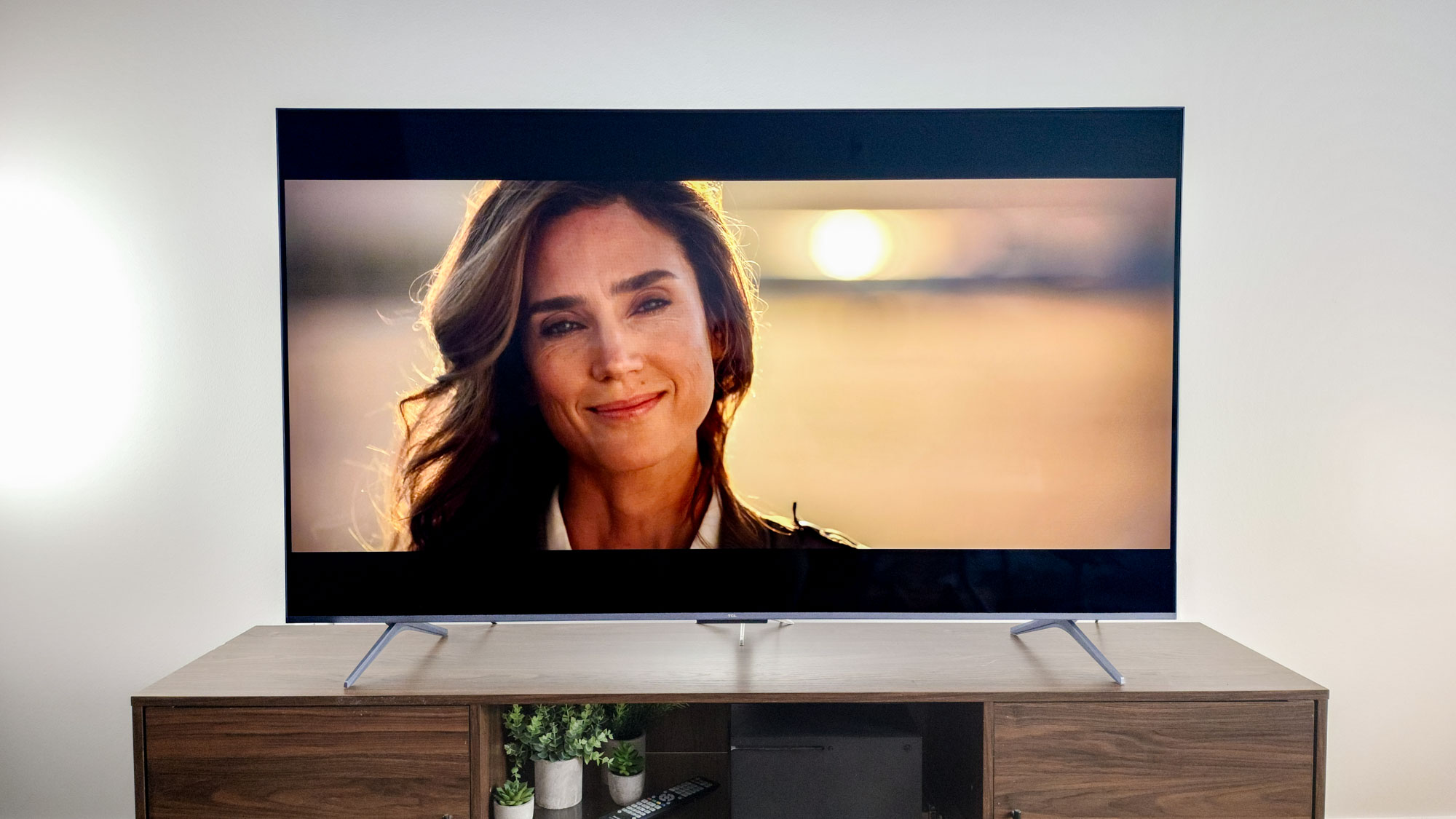
The best TVs under $500 are a lot better than you'd expect them to be. Years ago, spending $500 on a new TV might only get you 1080p resolution and a 40-inch screen. These days, it's definitely possible to score a 55-inch or even a 65-inch 4K smart TV for less money and with much better performance.
For that reason, I recommend that everyone check out the Hisense U65QF and TCL QM6K, two exceptional Mini-LED TVs with great contrast, color volume and brightness. You won't believe how good they look for the price.
If you want something that's a little simpler to use, the Roku Plus Series delivers great bang for your buck and it comes with the ultra intuitive Roku smart TV platform. You can't go wrong if you just want something simple.
Quick list
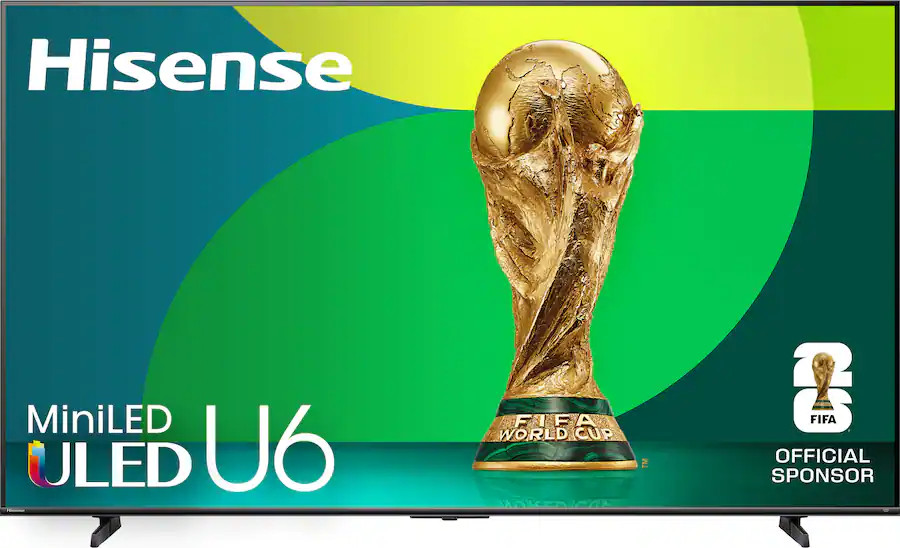
It's a close call between the Hisense U65QF and the TCL QM6K, but in the end, I think the U65QF delivers a better bang for your buck under $500. It's brighter. It's more colorful. The only issue is Fire TV...
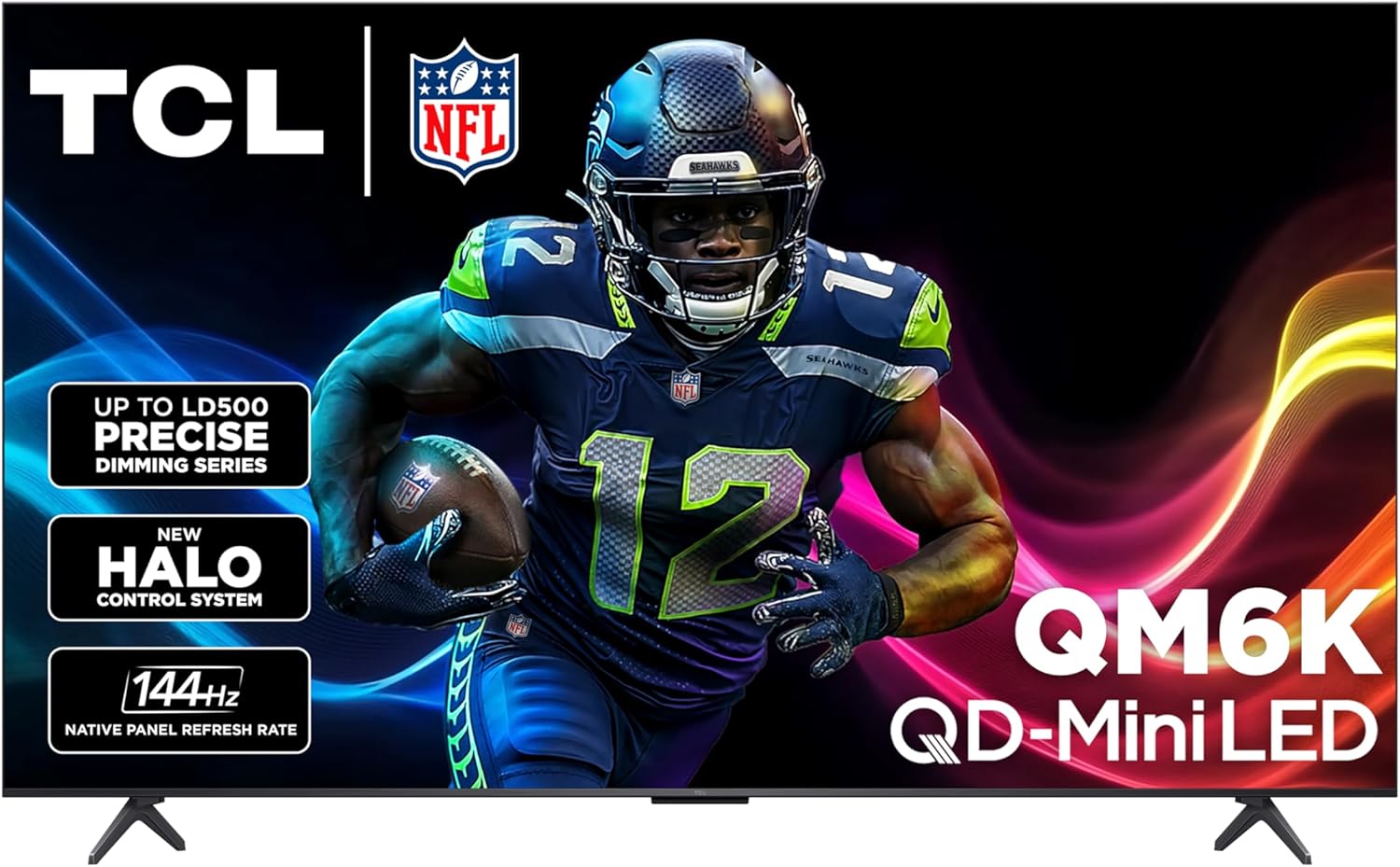
The 55-inch TCL QM6K is loaded with features and supports every single HDR format. It offers excellent picture performance and is built on Google TV, which comes well-stocked with over 10,000 apps.
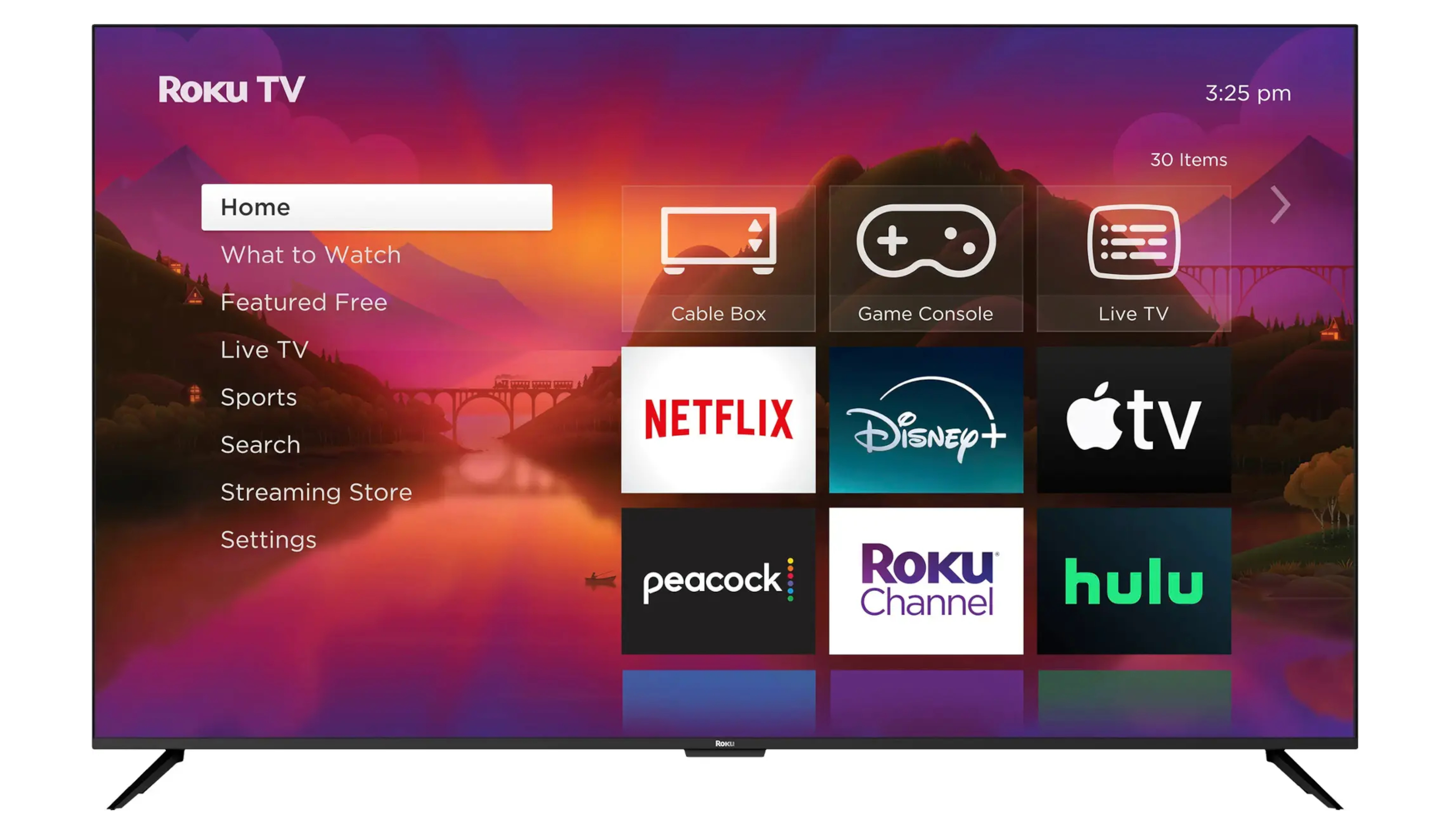
There are few TVs under the $500 mark that offer a better value than the Roku Plus. It's equipped with Dolby Vision, bezel-less viewing, and 60Hz, with tons of free content to enjoy.
About the author
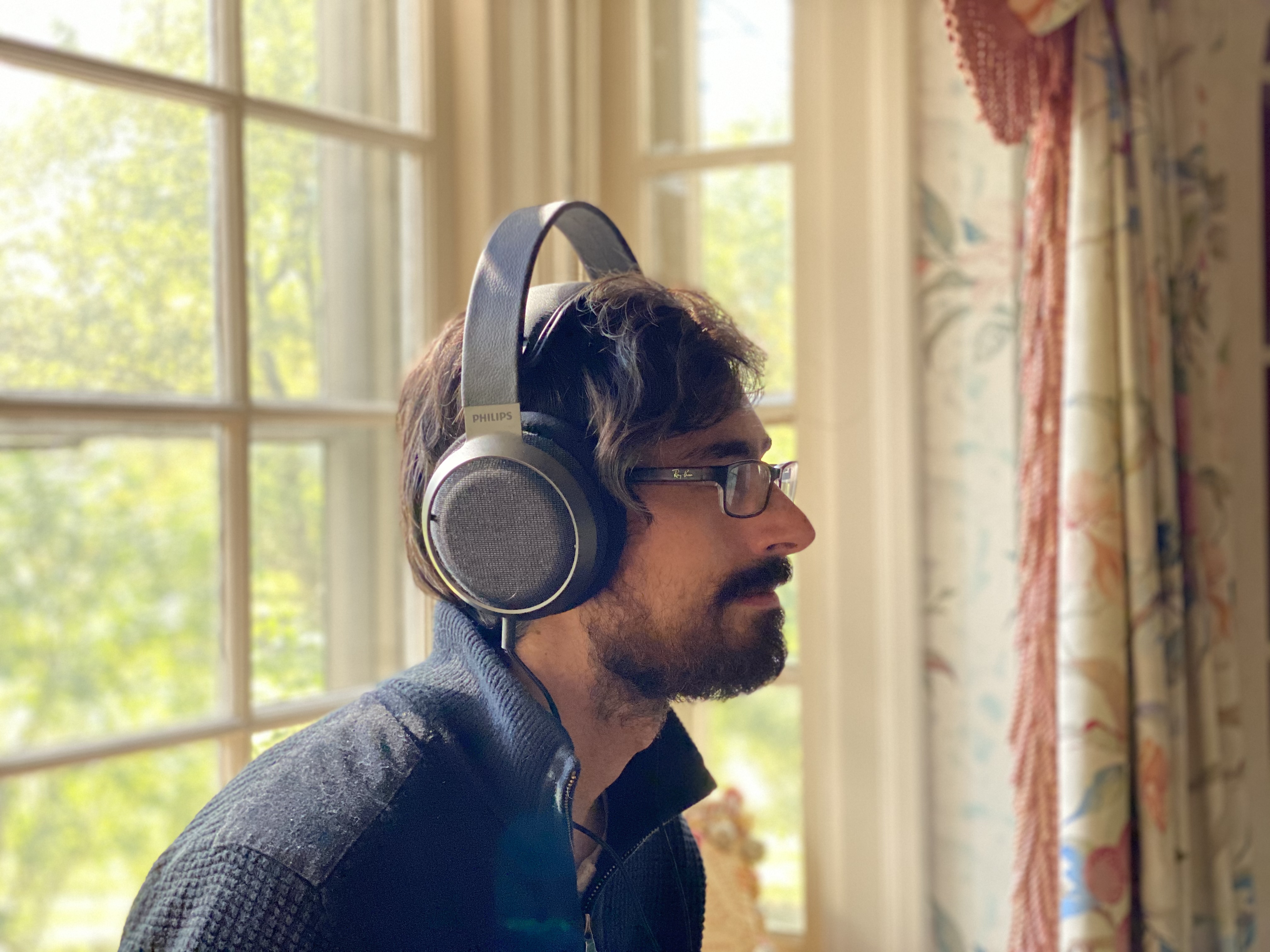
My name's Nick and I look after the TV section here at Tom's Guide. I've been a TV reviewer for the last 10 years, and before Tom's Guide, I was the Senior TV Editor at our sister site, TechRadar. Despite often reviewing high-end TVs, I spend most of my time watching cheaper TVs so trust me when I say you don't have to spend over $1,000 for a great experience. No, you won't find any respectable OLED TVs for under $500, but I've discovered some fantastic value options that rival TVs twice their price. A good TV at a good price? Now that's what I call a win-win.
The best TVs you can buy under $500 right now
Why you can trust Tom's Guide
Best TV under $500 overall
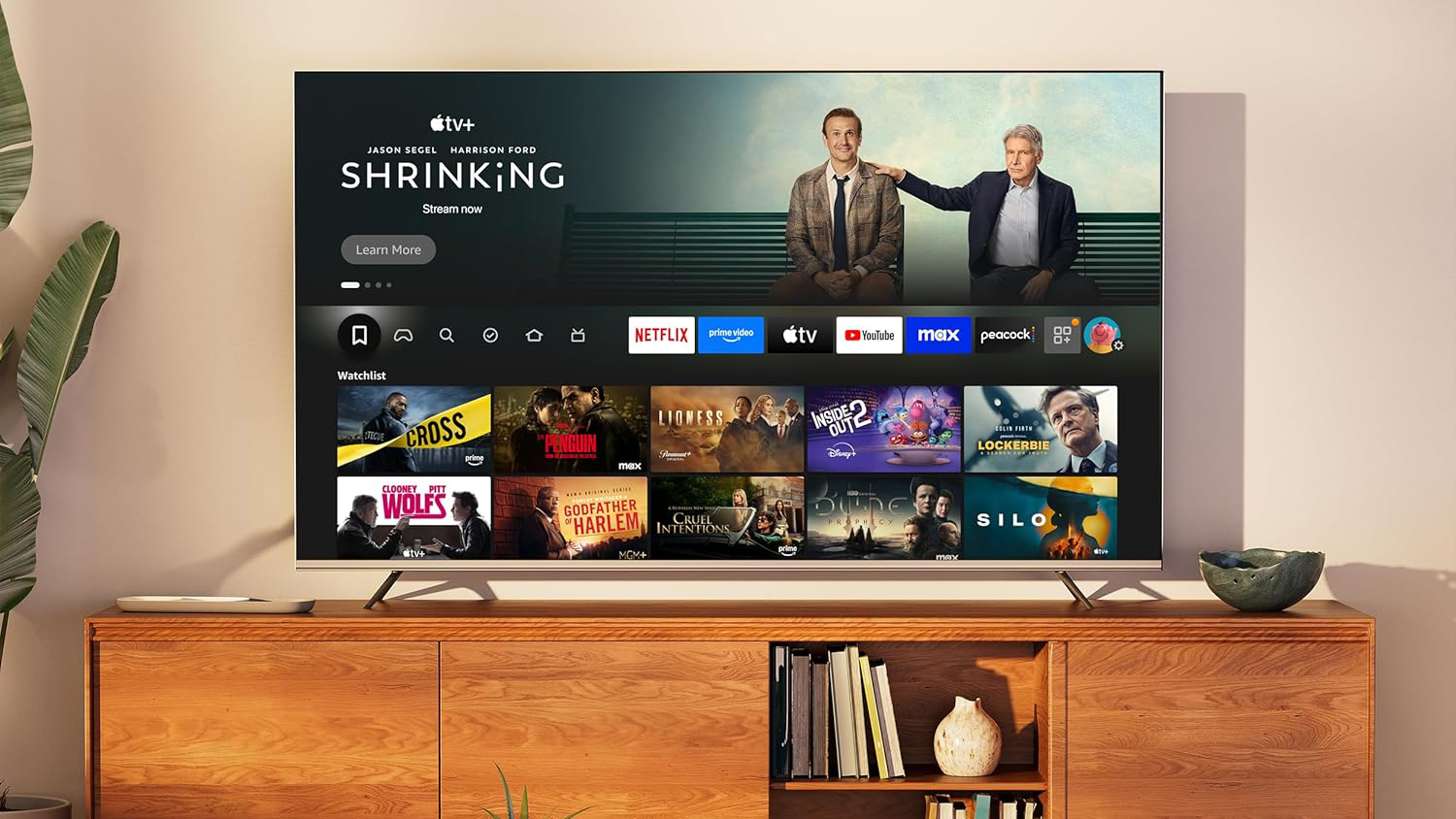
Specifications
Reasons to buy
Reasons to avoid
Until we brought the Hisense U65QF into our labs for testing, I really thought the TCL QM6K was the best TV under $500 we'd see in 2025. But then I saw the performance data on the Hisense. It's significantly better.
I won't bore you with the technical specs (though, you can look those over for yourself in our full review) but the highlights here are the U65QF's incredible brightness and vivid color volume. It's nearly twice as bright as the TCL QM6K, and will blow you away with its stunning color reproduction.
So why doesn't it earn a perfect score? It's simple: It comes with Fire TV built-in. Amazon's smart TV platform has a lot of great features, like access to every major streaming service and support for Alexa-enabled smart devices. But it also is loaded with ads for Amazon services and products.
You can get around that by connecting one of the best streaming devices, like say the Apple TV 4K or Roku Streaming Stick, but that's an additional cost. Thankfully, the TV itself is relatively affordable and, more importantly, looks phenomenal, so the extra effort is probably worth it.
- Read our full Hisense U65QF review
Best 55-inch TV under $500
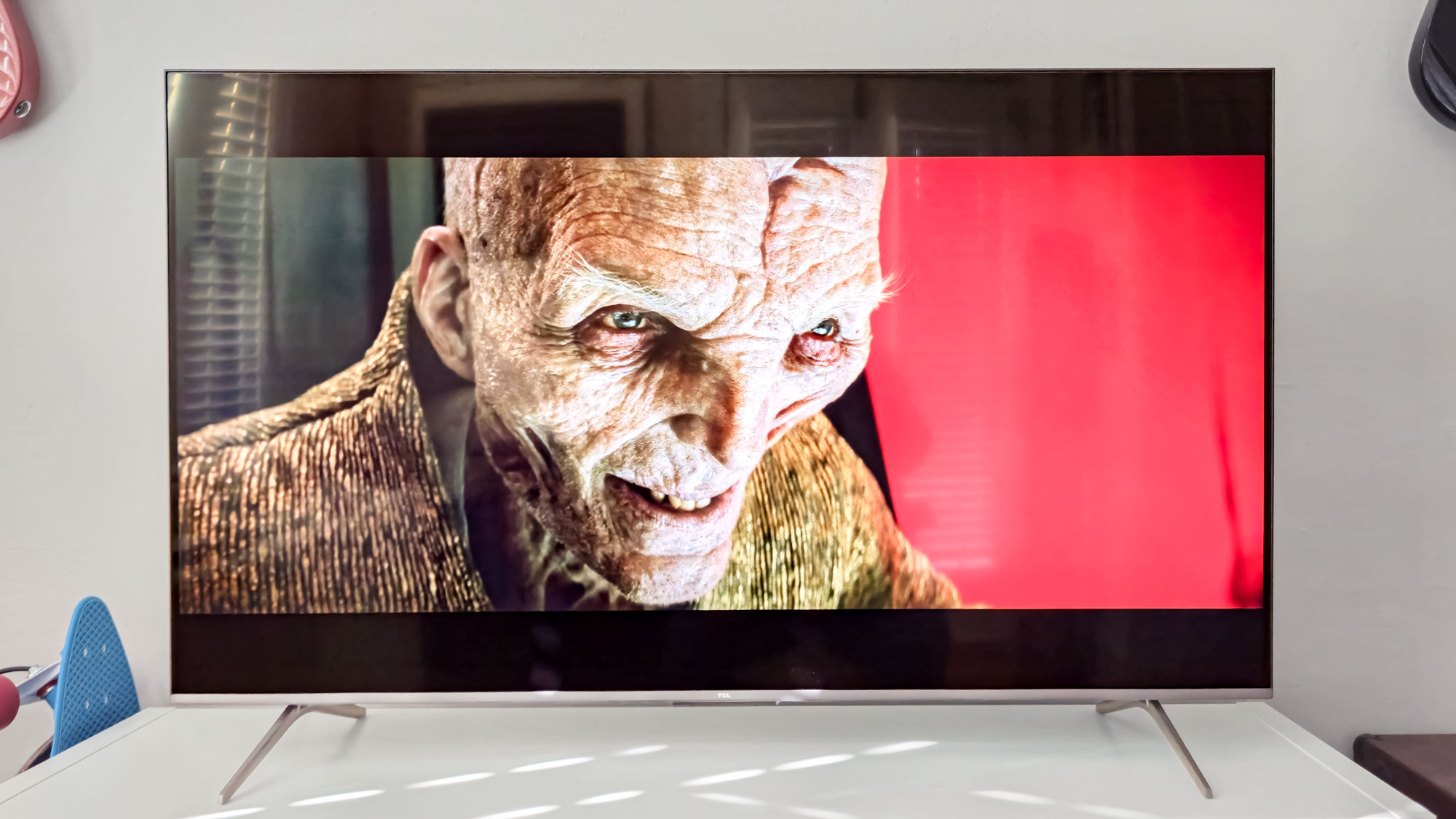
Specifications
Reasons to buy
Reasons to avoid
The TCL QM6K may not be the final word in brightness or color volume in the sub-$500 category, but it does have the Hisense U65QF beat in one key category: its smart TV platform.
Loaded up with Google TV, the QM6K comes with Chromecast built-in and connects seamlessly to your Google Home-based smart gadgets. Every time you turn it on, you'll see a fresh set of recommendations from all of your favorite streaming services (YouTube included) and voice search is super accurate thanks to Google Assistant.
The TCL QM6K is not only great for TV lovers but it's the ideal gaming companion, too. It's built with a range of features that make it suitable for everything from HDR entertainment to fast-paced FPS gaming.
It doesn't beat the Hisense U65QF on performance or price, but it's certainly much more user-friendly.
- Read our full TCL QM6K Mini-LED review
Best 65-inch TV under $500
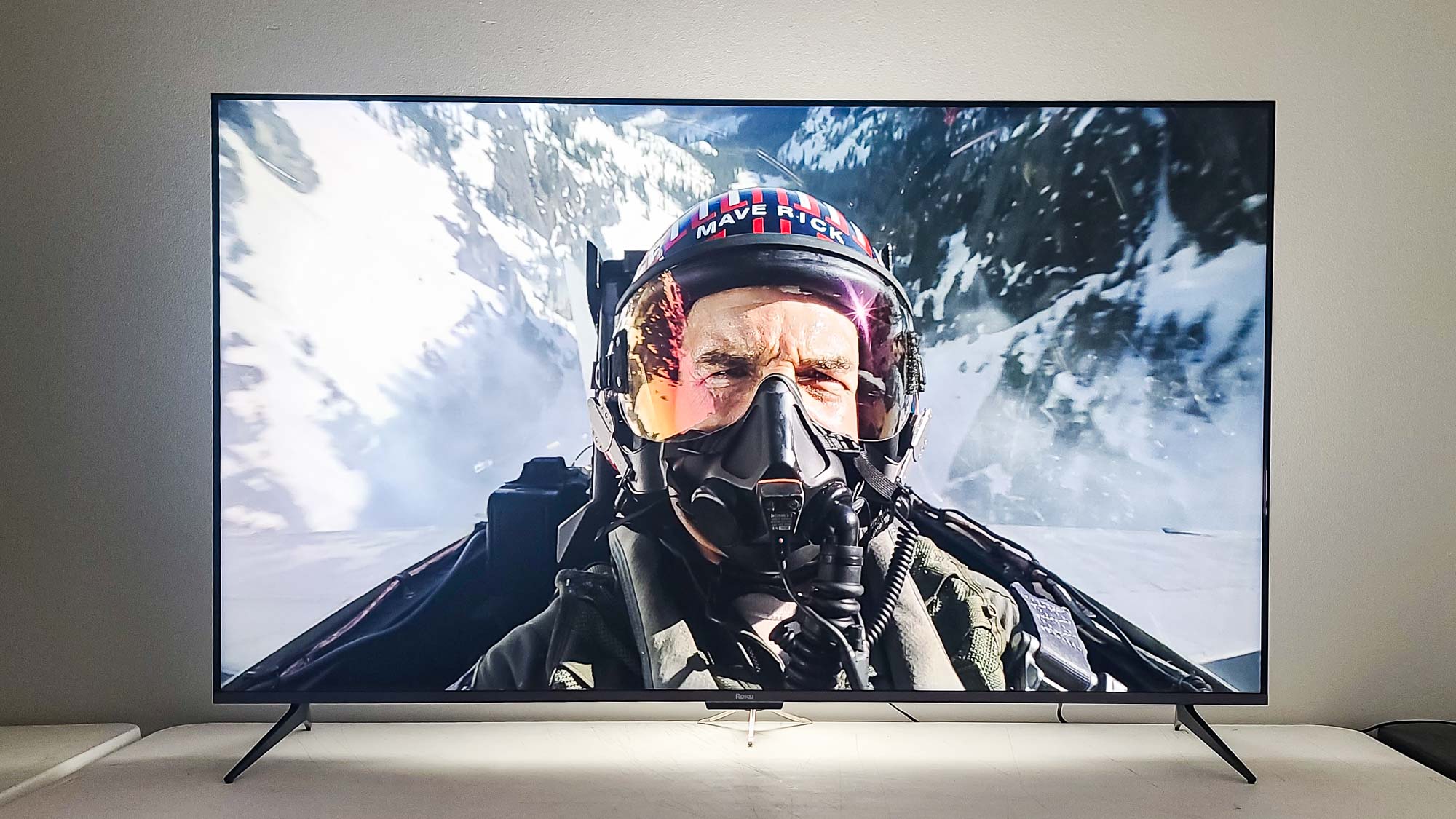
Specifications
Reasons to buy
Reasons to avoid
The Roku Plus sports a surprising value as a QLED TV from the makers of one of the best streaming devices. It supports all the latest HDR standards including HDR10, HDR10+ and Dolby Vision, plus it comes with four HDMI 2.0 ports.
At the time of writing, most major retailers are carrying the 55-inch model for around $399. If you're shopping for something bigger, the 65-inch Roku Plus Series can be found for around $499.
The Plus Series' defining feature is its built-in Roku functionality. In a world where the concept of a Roku TV seems to be fading, it's nice that the option is still available at an agreeable price point.
The Plus Series doesn't get as bright as its higher-end counterparts (we clocked its peak HDR brightness at 459 nits), nor can it deliver 4K content above 60Hz. This makes it a less-than-ideal pick for A/V enthusiasts or gamers shopping on a budget.
But for folks who just want a reliable, set-it-and-forget-it option, the Plus Series is a great pick. It won't wow you with its picture unless you're upgrading to 4K for the first time, but it'll get the job done.
- Read our full Roku Plus Series 4K QLED TV review
How to choose the best cheap TV
Scoring a TV for less than $500 means giving up some of the nicer features and design touches for a more affordable price. But you can still get some excellent features without blowing the budget. Here are a few things you can still easily find in your price range.
4K resolution: 4K resolution is so affordable, and the quality so much better than 1080p or 720p, that we always recommend going for 4K. Unless you're on a shoestring budget, getting a proper 4K TV won't even save you much money, but you will notice the difference.
Screen size: You may not always be able to score a premium 65-inch TV for under $500, but you can still get a decent 55-inch model, so don't settle for some dinky 43-inch set unless it's the right size for the space.
HDR support: If there's one feature we recommend, it's high dynamic range (HDR). Even basic HDR support provides better color, brighter highlights and richer shadows, giving you a better picture in every respect. If you can find a set with Dolby Vision, that's even better, but you may pay more for that feature.
Connectivity: More HDMI ports are always better, so you don't find yourself having to awkwardly swap plugs on the TV every time you want to fire up a Blu-ray or jump into a game.
Gaming: For affordable gaming TVs, we recommend looking for sets with refresh rates of 60Hz or higher. Lag time is another concern, so check out individual reviews to find sets that have a lag time of shorter than 20 milliseconds for the best performance.
Which features are worth paying more for?
While budget-friendly TVs are pretty good, there's no denying that spending more will get you some features that you just won't be able to find for less than 500 bucks. If any of the below sound like a must-have for your new TV, consider spending a little bit more.
Screen size: If you're lucky, you will find one or two 65-inch TVs selling below the $500 mark during sales events. And going larger than that will always cost more. If you want something like a 75-inch TV, the only option is to pony up more money.
Picture quality: 4K resolution is great, but today's premium TVs have taken picture quality to new levels of excellence with better color, brightness and contrast, not to mention super-smooth motion handling. If you want the best picture quality, you'll want to consider paying more for technologies like quantum dots, mini-LED and OLED.
Sound quality: Today's budget TVs do a lot of things well, but sound quality usually isn't one of them. We recommend pairing your new TV with one of the best soundbars to get better audio than the tiny speakers crammed into a thin TV chassis could ever produce.
How we test the best cheap TVs
Evaluating TVs is about more than just kicking back to watch a movie. We lab test every TV, measuring color gamut, color accuracy and brightness to objectively see which sets are the best for these key indicators.
We also test for lag time — a key detail for gaming — measuring to the millisecond how long it takes for content to travel from the original source to the screen. We use these results to make numbers-based comparisons about color and display quality.
We also spend time with each set for real-world evaluation and see how our lab results translate into more subjective performance. We also compare sets side by side and view samples from the latest movies, specialized test patterns that highlight strengths and weaknesses of each display, and a range of content across several sources.
With that information, we can tell you which TVs look best, sound best and offer the best viewing experience. Finally, we evaluate the smart TV functions and apps for each TV, looking at everything from the remote control design to the voice interaction.
We put all of that data together with our real-world testing and stack it against the price of the TV. The result is a score that we feel best represents the totality of that model, and how well it stands up against its contemporary rivals.
Also tested
Unfortunately, not every TV under $500 can make the top cut. Here are the TVs we've recently tested that, while under $500, didn't live up to our expectations.
★★★
The Amazon Omni QLED is a bit too old to be included in this list (it launched in 2022) and pales in comparison to the Roku Plus Series. Amazon's smart platform also has more ads and is more prone to slowdown over time than Roku's. It's always on sale, which is a plus, but you're better off going with the Roku Plus Series if you want a TV that costs around the same price with better performance.
Read our full Amazon Omni QLED TV review
★★
The Samsung DU8000 has a great design and meets our criteria for its sticker price, but its performance didn't impress us when we got it into the lab for testing. Peaking at 324 nits in HDR, it's not as bright as the models listed above, and it lacks any HDMI 2.1 ports.
Read our full Samsung DU8000 review
Get instant access to breaking news, the hottest reviews, great deals and helpful tips.

Nick Pino heads up the TV and AV verticals at Tom's Guide and covers everything from OLED TVs to the latest wireless headphones. He was formerly the Senior Editor, TV and AV at TechRadar (Tom's Guide's sister site) and has previously written for GamesRadar, Official Xbox Magazine, PC Gamer and other outlets over the last decade. Not sure which TV you should buy? Drop him an email or tweet him on Twitter and he can help you out.
 Club Benefits
Club Benefits





